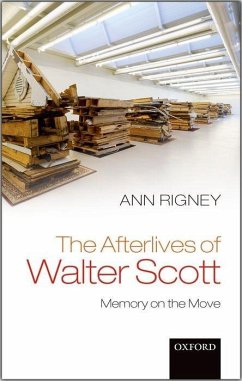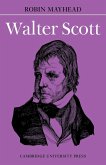Sir Walter Scott (1771-1832) was a household name in the nineteenth century; once an immensely popular writer, he is now largely forgotten. This book explores how Scott's work became an all-pervasive point of reference for cultural memory and collective identity in the nineteenth century, and why it no longer has this role. Ann Rigney breaks new ground in memory studies and the study of literary reception by examining the dynamics of cultural memory and the 'social life' of literary texts across several generations and multiple media. She pays attention to the remediation of the Waverley novels as they travelled into painting, the theatre, and material culture, as well as to the role of 'Scott' as a memory site in the public sphere for a century after his death. Using a wide range of examples and supported by many illustrations, Rigney demonstrates how remembering Scott's work helped shape national and transnational identities up to World War One, and contributed to the emergence of the idea of an English-speaking world encompassing Scotland, the British Empire and the United States. Scott's work provided an imaginative resource for creating a collective relation to the past that was compatible with widespread mobility and social change; and that he thus forged a potent alliance between memory, literature, and identity that was eminently suited to modernizing. In the process he helped prepare his own obsolescence but his legacy continues in the widespread belief that showcasing the past is a condition for transcending it.
Bitte wählen Sie Ihr Anliegen aus.
Rechnungen
Retourenschein anfordern
Bestellstatus
Storno








